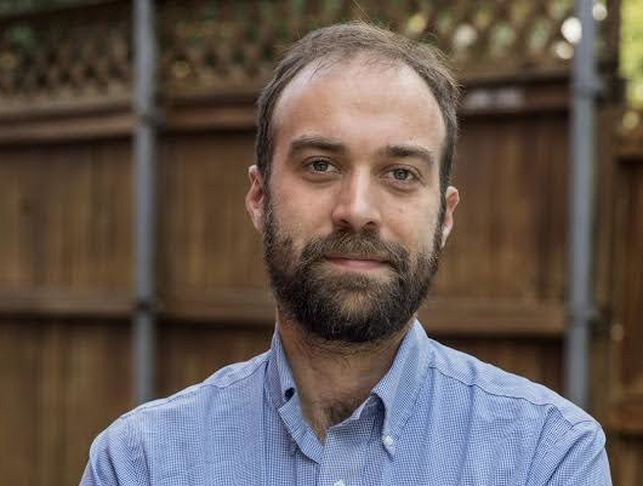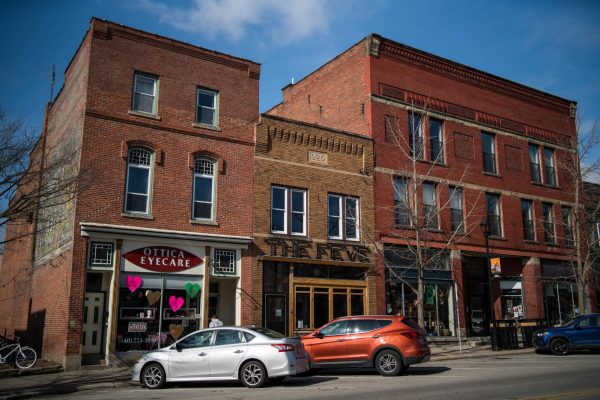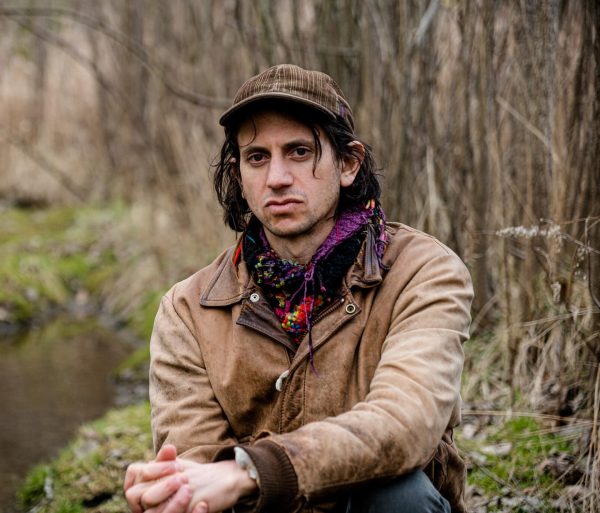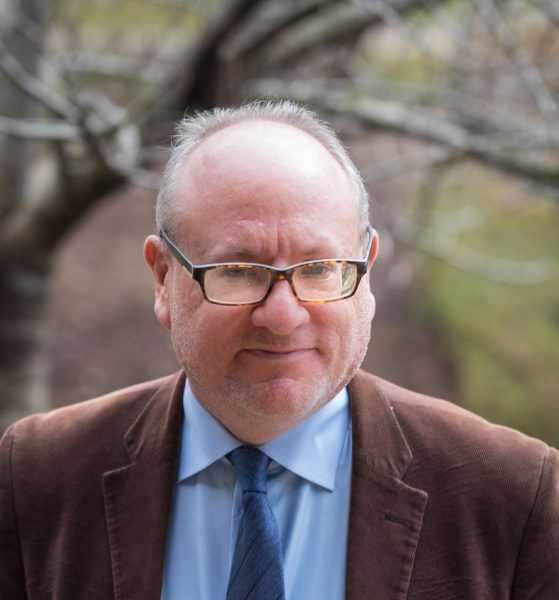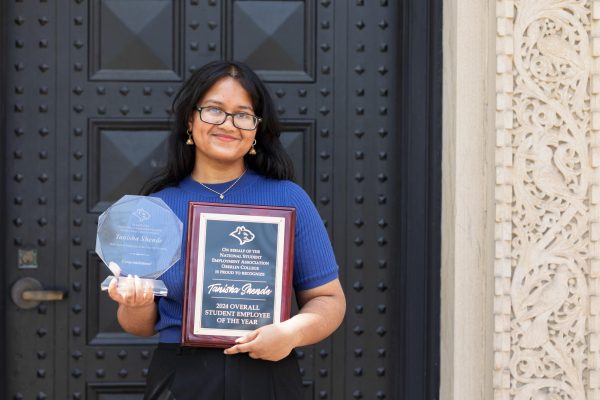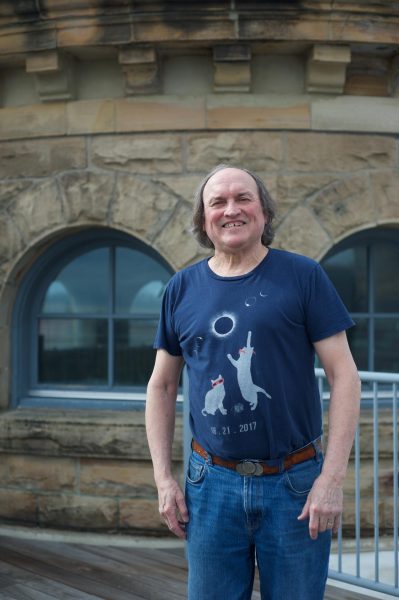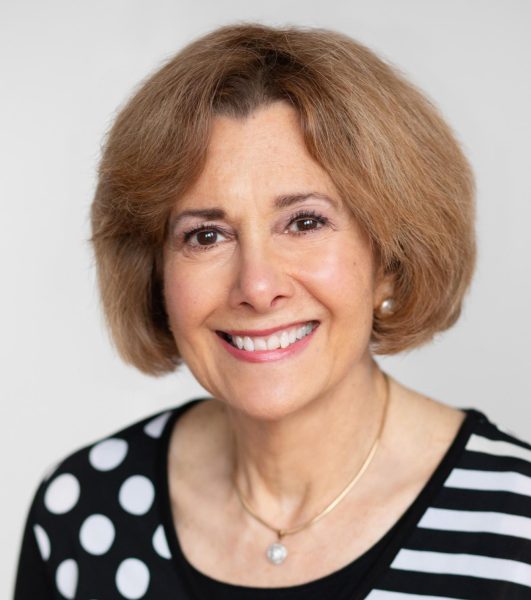Josh Keating, OC ’07, Slate Editor
Joshua Keating
Josh Keating, OC ’07, is a writer and editor at Slate magazine focusing on international news and foreign policy. He returned to campus in October to meet with students, faculty, and staff and to discuss his new book Invisible Countries, which investigates ideas around nationhood, borders, and what defines a country. Keating has been interested in geography and borders since childhood, when he followed global news events like the fall of the Berlin Wall. Over the course of his research for the book, he traveled all over the globe to speak with people about their experiences living in places with complicated national identities. While a student at Oberlin, Keating was a News Editor and Editor-in-Chief for The Oberlin Review, and credits his broad educational base and time spent working for a student publication as the launching point for his career.
This interview has been edited for length and clarity.
Can you talk briefly about the book you just published?
Yeah, sure. It’s called Invisible Countries, and basically, it’s a book about why it’s hard to start a new country, why it doesn’t happen very often anymore, and how we seem to be stuck with the world map as it’s existed for a few decades. We see very few newly independent countries and very few border changes between the ones that do exist. And so to explore this, I visited several places that are kind of a little more ambiguous. That could be an unrecognized country like Abkhazia, [near] Georgia. I went to a Mohawk community that straddles the U.S.–Canada border. … I went to a small island country in the Pacific that’s threatened by climate change and where lawyers are thinking about what it will mean for their nationhood if they have to relocate. So, yeah, those are the kind of issues I was exploring in [the book].
What got you interested in the topic?
I’d always been kind of interested in maps and geography, just as a kid. I think at the time, some of my earliest news [and] politics memories were the fall of the Berlin Wall. I was very young at the time, but just that idea that two countries could become one country or, in the case of the Soviet Union, [that] one country could break apart into 15 countries. [It] was something that really fascinated me when I was a kid. But then by the time I started doing this professionally, that didn’t really happen anymore, and we kind of have this idea that the map of the world is sort of fixed the way it is, this era of geographical stasis. And so I was interested in why that is and also this idea of national legitimacy, like who gets to decide what a real country is.
Can you talk about some of that field research and what that was like?
Yeah, so the main framing example in the book was a soccer tournament for unrecognized countries. It’s like a World Cup for countries that don’t exist. I went to [it] in Abkhazia, which is a breakaway region of Georgia. So that was one of the places I recorded. I went to the Kurdish region of Iraq, I went to Somaliland, which is northern Somalia. [I went to] a Mohawk community. All of these places, they’re places that don’t get too much news coverage, so people were surprisingly open-minded and friendly and, you know, maybe more trusting of me than I had any right to expect — particularly given, you know, the current political situation in the U.S.
How has it been for you being back on campus, interacting with students?
It’s been great. Surprisingly little has changed, actually. It’s this funny thing where I keep seeing people that I think I recognize and then being like, no, that was 10 years ago, that person would not be here now. But then it’s like, oh no, there’s just types that I’m seeing again. It’s funny how fast you kind of slip back into [it].
There is a lot of discussion at Oberlin about how being here and getting a liberal arts education prepares people to be journalists. Can you elaborate on that?
I guess I would encourage people who want to be journalists to sort of study the thing they want to write about. The kind of basics of structuring an article or conducting an interview or framing a story, those are things you’re going to learn by doing it, whether that’s as [a] student journalist or an internship somewhere or in journalism school, it’s definitely something you kind of learn through practice. I think in terms of your college education, you’re better off either getting a well-rounded education like I did or if you just want to cover biology then just study biology. Become an expert on that, and that’s going to help you as much as taking a class on how to write a lede.
Currently, one of the big points of contention among students has to do with money, since Oberlin is in some hard financial times. I’m curious if there were times when you were here when the College did fall on hard times in a similar way, and what your perspective is on that now?
Yeah, there was a budget crunch while I was here and we were preparing for a round of strategic planning. I remember there were some faculty positions they were eliminating — not firing people, but just not rehiring. I remember one big story. They had eliminated — I believe it was an Asian American Studies position — and students actually occupied the president’s office to protest the elimination of that position. So I’d say these tradeoffs aren’t new. There’s always that tension of how to make the College economically viable and remain true to the core mission and the things people like about this place, which are not necessarily things that prepare them for careers where they’re gonna be making large donations down the road. So those tensions aren’t new. I think just the nature of the student body being what it is, there’s always some friction between students and the administration. In a weird way, that’s kind of part of the education you get here. It was for me, covering those issues helped me as a journalist. I know people who have careers either in electoral politics or in activism who pretty much got their start in the campus controversies here. So not to downplay the problems that are there, but I think these aren’t unique issues.
What’s one of your favorite stories from your time at Oberlin?
Does the phrase “PSA motherf**ker” mean anything to you guys? … So it was horrible when it happened. It was like the worst day, but in retrospect it was pretty funny. We sent the wrong file version of the Review to the printer, and we’d had a PSA, just to cover the space, and we hadn’t actually put in the final text yet. So our layout editor had just written “PSA motherf**ker” in really big print on this page. There were mistakes all through it because it was the wrong version of the file. The Grape had a really good time with that — fair enough, to be honest.
So it got printed?
It got printed as “PSA motherf**ker.” We were talking about whether to just pull it and just not have the Review that week or just run it online. But there was something very important that was being announced that day. We were like, okay, it’s important enough that we get this news out that we will run these humiliating mistakes, including “PSA motherf**ker” in the newspaper. And Robert Kuttner, who was the editor of The American Prospect, the next day he was on campus to give a talk to student journalists. I was there with the rest of the staff, and I asked him some question like, “What do you do if you’ve just made a horrible mistake?” That was a bad day.


